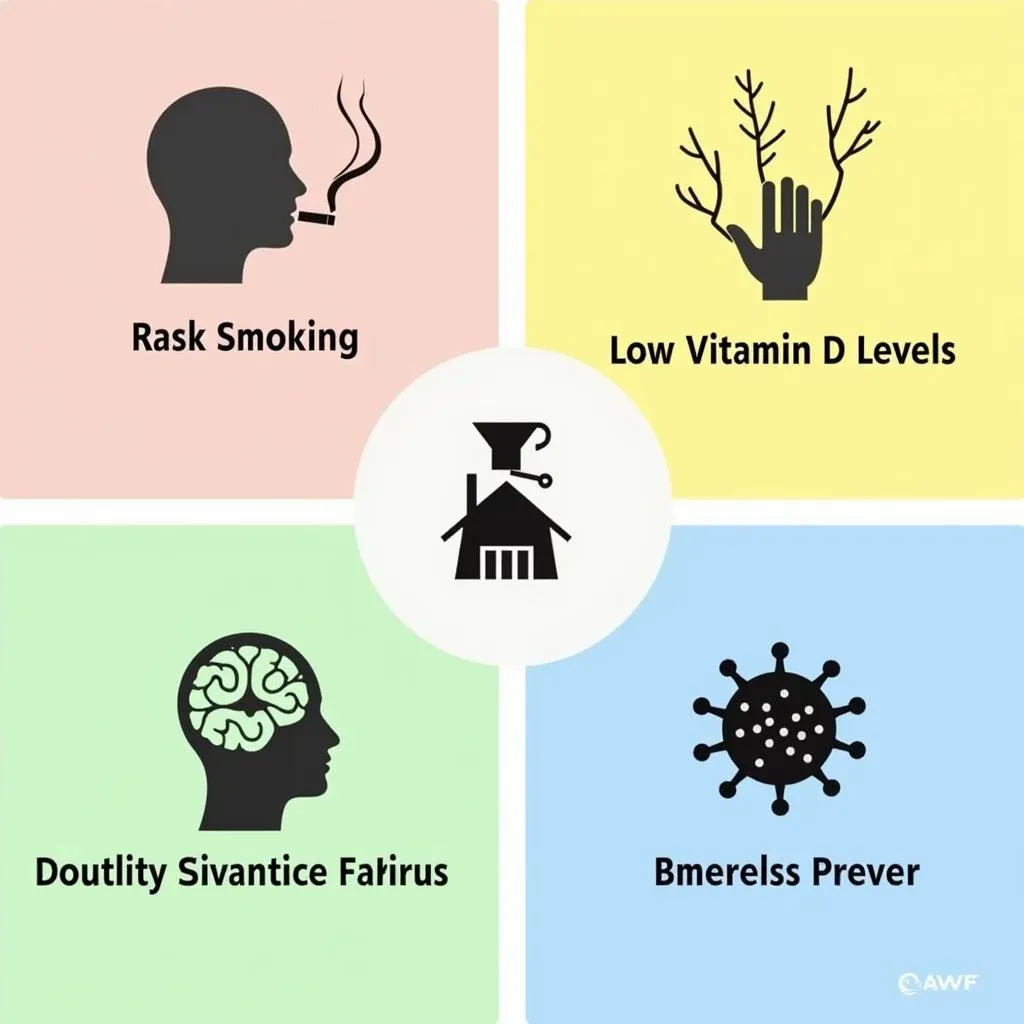Multiple Sclerosis: Understanding the Unpredictable
Multiple sclerosis (MS) is a chronic, unpredictable disease of the central nervous system, which comprises the brain, spinal cord, and optic nerves. In essence, the immune system mistakenly attacks the myelin, a protective sheath that surrounds nerve fibers. This assault disrupts the flow of information within the brain and between the brain and the body, leading to a wide range of symptoms.
What Causes Multiple Sclerosis? The Quest for Answers
The exact cause of multiple sclerosis remains elusive, but research suggests a complex interplay of genetic predisposition and environmental triggers. While scientists haven’t pinpointed specific genes responsible for MS, having a first-degree relative with the disease increases the risk.
Environmental factors under scrutiny include:
- Epstein-Barr virus (EBV) infection: Most people encounter EBV, the virus causing mononucleosis, at some point. Research suggests a strong link between EBV infection and MS, although the exact mechanism remains unclear.
- Vitamin D deficiency: Low levels of vitamin D, a nutrient obtained through sunlight exposure and certain foods, have been associated with a higher MS risk.
- Smoking: Cigarette smoking not only increases the risk of developing MS but also appears to accelerate disease progression.
 Environmental Factors and MS Risk
Environmental Factors and MS Risk
Symptoms of Multiple Sclerosis: A Kaleidoscope of Manifestations
Multiple sclerosis is often called “the disease of 1,000 faces” due to its highly variable and unpredictable nature. Symptoms can differ significantly from person to person and fluctuate over time, even in the same individual. Common symptoms include:
- Fatigue: Overwhelming exhaustion, often disproportionate to activity level, is a hallmark of MS.
- Vision problems: Optic neuritis, inflammation of the optic nerve, can cause blurred vision, double vision, or even temporary vision loss.
- Numbness or tingling: These sensations, often in the limbs, occur due to disrupted nerve signals.
- Muscle weakness or spasms: Muscle control issues can range from mild stiffness to significant difficulty with walking and coordination.
Diagnosing Multiple Sclerosis: Piecing Together the Puzzle
Diagnosing multiple sclerosis can be challenging due to the absence of a single definitive test and the similarity of its symptoms with other neurological conditions. Doctors typically use a combination of:
- Medical history and physical examination: A detailed account of symptoms, along with neurological tests, provides crucial clues.
- Magnetic resonance imaging (MRI): This imaging technique can reveal lesions (damaged areas) in the brain and spinal cord characteristic of MS.
- Lumbar puncture (spinal tap): Analyzing cerebrospinal fluid, the fluid surrounding the brain and spinal cord, may show abnormalities suggestive of MS.
 Diagnosing Multiple Sclerosis
Diagnosing Multiple Sclerosis
Research on Multiple Sclerosis Treatments: Strides Towards a Brighter Future
While there’s no cure for multiple sclerosis, researchers are making significant strides in developing treatments that can slow disease progression, manage symptoms, and improve quality of life. These treatments fall into several categories:
- Disease-modifying therapies (DMTs): These medications aim to suppress the immune system’s attack on myelin, potentially reducing the frequency and severity of relapses.
- Symptom management: Medications and therapies can address specific symptoms, such as fatigue, pain, muscle spasticity, and bladder or bowel dysfunction.
- Rehabilitation therapies: Physical, occupational, and speech therapies play a vital role in maximizing function and independence.
Conclusion: Navigating Life with Multiple Sclerosis
Living with multiple sclerosis presents unique challenges, but research advances continue to offer hope and improved outcomes. Early diagnosis and individualized treatment plans are crucial for managing symptoms, slowing disease progression, and empowering individuals to live fulfilling lives.
FAQ: Frequently Asked Questions about Multiple Sclerosis Research
1. Is there a cure for multiple sclerosis?
Currently, no cure exists for MS. However, ongoing research is exploring various avenues for potential future treatments.
2. What are the latest breakthroughs in multiple sclerosis research?
Recent research has focused on personalized medicine, stem cell therapy, and understanding the gut microbiome’s role in MS.
3. How can I participate in multiple sclerosis research?
You can inquire about clinical trials in your area or consider donating to reputable organizations funding MS research.
4. What are the most promising areas of research for new MS treatments?
Immunotherapy, neuroprotection, and myelin repair are considered promising avenues for developing new MS treatments.
5. What lifestyle changes can I make to manage my multiple sclerosis?
Maintaining a healthy diet, engaging in regular exercise, managing stress, and avoiding smoking can positively impact MS management.
For any queries or assistance, please reach out to us at:
Phone Number: 0904826292
Email: research@gmail.com
Address: No. 31, Alley 142/7, P. Phú Viên, Bồ Đề, Long Biên, Hà Nội, Việt Nam.
Our dedicated customer support team is available 24/7 to address your needs.